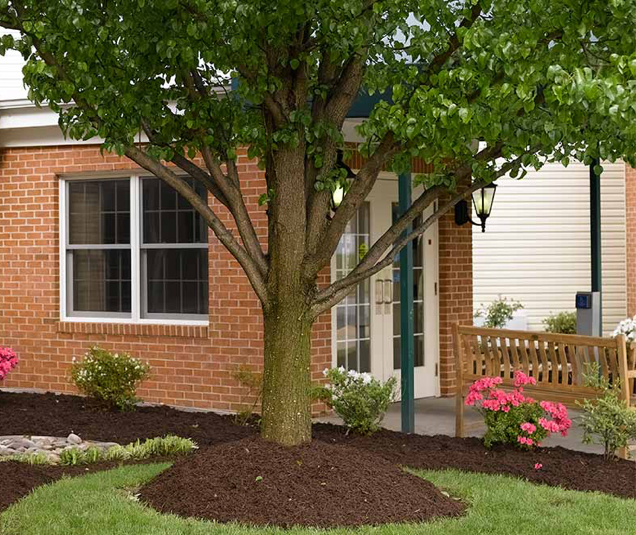Transitioning from assisted living to memory care is a significant decision that many families find challenging. It’s often a difficult process to determine the appropriate moment for your loved one to make this important move, as numerous factors come into play that can affect their well-being and quality of life.
The most critical factors to evaluate include:
- Declining cognitive abilities
- Increased care need
- Safety concerns
- Social isolation
- Emotional considerations
Ultimately, selecting the right time and place for your loved one’s care requires thoughtful consideration and open communication among family members.
Declining Cognitive Abilities
One of the main reasons families may consider moving their loved one from assisted living to memory care is a decline in cognitive abilities. This can manifest as forgetfulness, confusion, and difficulty with daily tasks. As dementia or Alzheimer’s disease progresses, it can become increasingly challenging for individuals to live independently and safely in an assisted living setting.
In some cases, a person with mild cognitive impairment may be able to continue living in assisted living with additional support and accommodations. However, as the condition progresses, memory care may become necessary for more specialized care and support.

Increased Care Needs
As cognitive abilities decline, individuals may also require more assistance with activities of daily living, such as bathing, dressing, and medication management. While assisted living communities do provide some level of care, memory care communities are specifically designed to meet the unique needs of those with memory impairment.
This can include personalized care plans that cater to individual abilities and challenges, structured routines to help maintain a sense of familiarity and reduce confusion, and trained staff who specialize in caring for those with dementia or Alzheimer’s disease.
Safety Concerns
Safety is another important consideration when determining if it’s time to move from assisted living to memory care. As cognitive abilities decline, individuals may become prone to wandering or getting lost, which can pose a serious safety risk. Memory care communities are designed with these risks in mind, often featuring secured entrances and exits, wandering paths with visual cues, and 24-hour supervision to ensure the safety of residents.
Social Isolation
As dementia or Alzheimer’s disease progresses, individuals may also experience social isolation as they struggle to communicate or engage in activities. Memory care communities offer specialized programming and activities that cater to the unique needs of those with memory impairment, providing opportunities for socialization and mental stimulation.
Additionally, memory care communities often have a higher staff-to-resident ratio compared to assisted living communities, allowing for more individualized attention and social interaction.
Emotional Considerations
Making the decision to move a loved one from assisted living to memory care can be emotionally challenging for both the individual and their family. It’s important to consider the emotional well-being of everyone involved and carefully weigh the benefits and drawbacks of a transition.
Memory care communities offer a supportive environment where staff are trained in handling difficult behaviors that may arise as a result of memory impairment. They also provide support for families, offering resources and guidance on how to best care for their loved one.
Tips for a Smooth Transition
If you are considering moving a loved one from assisted living to memory care, here are some tips to help make the transition as smooth as possible:
- Start the conversation early: It’s important to involve your loved one in the decision-making process and have open communication about their needs and preferences.
- Tour multiple communities: Take the time to tour different memory care communities and compare their amenities, services, and staff qualifications.
- Involve healthcare professionals: Consult with your loved one’s healthcare team for recommendations on memory care options that may best suit their needs.
- Plan for familiarization visits: Before making the move, plan multiple visits to the new community with your loved one. This can help them become more comfortable with the new environment.
- Personalize their living space: Bring familiar items from their assisted living apartment to make their memory care room feel more like home.
- Communicate with staff: Share important information about your loved one’s preferences, routines, and personality traits with the memory care staff to help them provide personalized care.
Empowering Lives with Compassionate Memory Care at Peregrine Senior Living
While assisted living may be suitable for individuals in the early stages of dementia or Alzheimer’s disease, it may not provide the level of specialized care needed as the disease progresses. Memory care communities offer a safe and supportive environment with trained staff and tailored programming to meet the unique needs of those with memory impairment. At Peregrine Senior Living, we understand the challenges of caring for a loved one with memory loss and offer compassionate care in our specialized memory care communities. We believe that each resident deserves to live their best life, regardless of their condition, and we are committed to providing personalized care and support for both residents and their families. Contact us today to learn more about our memory care options.













No more posts